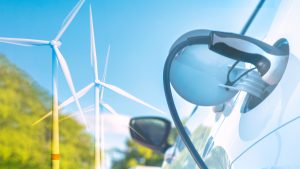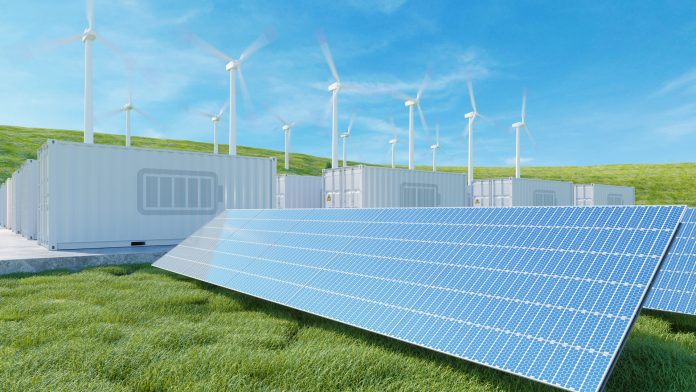The launch of the BATT4EU co-programmed Partnership marks a significant milestone in Europe’s path toward a greener future. Michael Lippert, Chairman at Batteries European Partnership Association explains more.
The BATT4EU co-programmed Partnership has been established under Horizon Europe – the Framework Programme for Research and Innovation of the European Union – as a result of the Memorandum of Understanding (MoU) signed by the European Commission and the Batteries European Partnership Association (BEPA) – which regroups all the battery stakeholders from the European Research community. The goal behind the newly founded BATT4EU partnership is to support and promote the development of a more sustainable, circular and competitive European battery value chain applied to the e-mobility sector and stationary applications. In order to meet the above goal, the Partnership will undertake the following activities:
- Propose and prioritise topics for battery calls for proposals within the Horizon Europe Work Programmes;
- Regularly update the Strategic Research and Innovation Agenda (SRIA) for batteries and implement the strategic actions accordingly;
- Endorse and oversee the portfolio of battery projects funded under the Partnership Work Programmes;
- Build and strengthen networks within the battery sector;
- Ensure synergies among different European Partnerships and already existing initiatives; and
- Promote the development of EU regulations on battery standards, safety, and sustainability, whilst actively supporting innovation uptake in the market.

The larger picture: the battery storage market
Europe’s battery demand is skyrocketing year on year, with applications in the e-mobility and stationary storage domains taking a stark lead over consumer electronic goods’ applications. The outlook anticipates a large growth of the market, indeed: by 2030 the mobility sector will represent over 80% of the demand for rechargeable batteries – not only for road vehicles, but also for other transport modes such as waterborne, rail, off-road and some segments of air transport.
However, the growth of stationary storage is contributing extensively to the intensification of research and manufacturing of advanced battery technologies, which are needed at very different scales to support the massive use and integration of variable renewable energies in our electricity system, whether directly associated to large wind or solar farms or operated as standalone, grid connected means of flexibility. The possibility, for large energy users such as industries, to store renewable energy (e.g. produced by photovoltaic panels) for later use is being considered by many to integrate a more sustainable behaviour into their business plans. The use of second life batteries creates the bridge between both segments and constitutes another significant potential for innovation and enhanced sustainability in Europe.
Overcoming the challenges for Europe’s battery value chain
The advancement of the European Green Deal has come under the pressure of the sanitary and economic crisis of the past year and the growing number of human-induced climate change related natural incidents. A more ambitious strategy must be blueprinted to ensure that Europe becomes the world’s first climate-neutral continent by 2050. In particular, the European battery value chain needs to tackle some of its own challenges.
The European battery value chain is constantly being daunted by its competition. Europe needs to create an uncontested battery market space, engaging in a strategy based on the improvement of the technical performance of batteries; slashing the costs of production becomes imperative, too. To ensure that ‘Made in Europe’ batteries have an edge over other competitors, the European battery value chain will focus on improving its sustainability and circularity. R&I is of the essence here to reach the ambitious performance targets, introduce abundantly available, low carbon-intense and low-cost materials, enhance efficiency and expected battery lifetime, and develop cost-effective material processing, cell manufacturing and recycling processes and machinery.

In parallel, there is a need for industrial upscaling; that is, Europe needs to build high-volume ‘Giga-factories’ with manufacturing capacities of several tens of GWh of battery cells, highly automated and using advanced battery technologies, energy and material-efficient, and with the lowest environmental footprint. Within two to four years, the amount of end of life (EoL) batteries from e-mobility and stationary applications will rise, transforming completely the recycling value chain. This means that both the number and capacity of recycling facilities is required to increase. The new capacities need to be automated to reduce costs and reduce safety risks in all parts of the value chain.
This regulation will provide legal certainty, helping to unlock large-scale investments for battery technologies, and steer investments towards R&I. As such, end-of-life and advanced technologies that endorse direct recycling – recovering parts of the active materials and reusing them directly and immediately after – will be boosted.
BATT4EU: R&I to address Europe’s greatest battery value chain challenges
BEPA aims to support European battery research to contribute to the creation of a best-in-class innovation ecosystem for batteries and boost the creation of a competitive, sustainable, and circular European battery value-chain.
BEPA’s main scope is to provide input and advice to the European Commission with a view to contributing to the identification of priorities of research and innovation activities and the definition of battery call topics to be included in the Horizon Europe Work Programmes. Special attention is placed on projects promoting the recovery of battery components at the end of life and advanced technologies that endorse direct recycling – recovering parts of the active materials and reuse those directly and immediately.
The growing number of European battery stakeholders that are members of BEPA – already counting up to 170 – have the opportunity to take part in a large network that covers all segments of the battery value-chain; also providing the opportunity to exchange ideas and feedback on their projects, ideas and technologies during networking and match-making activities organised by BEPA.
As of now, BATT4EU has identified four categories of initiatives to collaborate with. These categories include:
- Initiatives integrating batteries in their field of applications, especially mobility (waterborne transport, road transport, rail, aviation, etc.);
- Initiatives that are key enablers for battery technologies, which provide innovative tools and methodologies to improve battery technologies and processes throughout the value-chain (focusing on specific issues such as recycling, circular economy, manufacturing robotisation, digitalisation, etc.);
- Initiatives that can help market uptake of battery technologies (such as cooperation with the relevant EIT Knowledge and Innovation Communities); and
- Other initiatives or organisations on more specific topics in order to ensure proper alignment and coordination at different levels (e.g. Joint Research Centre, Battery2030+).
BATT4EU will work closely with other European partnerships for proper alignment and collaboration and to ensure relevant synergies with other related R&I initiatives at the EU, national and regional levels. These collaborations and synergies are crucial to disseminate activities of the partnership, to coordinate R&I efforts on specific topics of common interests and to avoid any duplication of work.
Michael Lippert
Chairman
Batteries European Partnership Association
(BEPA)
Tel: +32 (0) 2 743 29 80
info@bepassociation.eu
Tweet @bepa_eu
www.bepassociation.eu
Please note, this article will also appear in the seventh edition of our quarterly publication.









